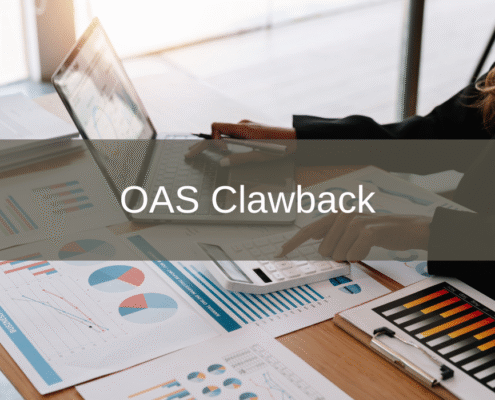
OAS Clawback 2025: What Retirees Need to Know About the Recovery Tax
The OAS recovery tax in 2025 is based on Line 23400 income and can quietly claw back your benefit. Learn how the clawback works, how much you could receive, and what strategies can help reduce or avoid it—like pension splitting, using a TFSA, managing RRIF withdrawals, and tax-efficient investing.

Personal Life Insurance Planning
Wondering which type of life insurance is right for you? This article breaks down what each option covers, how it works, and what it’s commonly used for—so you can feel confident protecting your family’s future.
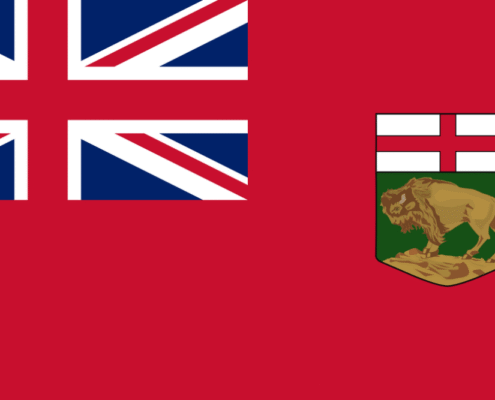
2025 Manitoba Tax Rates
2025 Manitoba Tax Rates – Get the latest provincial and federal tax rates, including marginal rates, capital gains, and dividends. Stay informed and plan ahead!
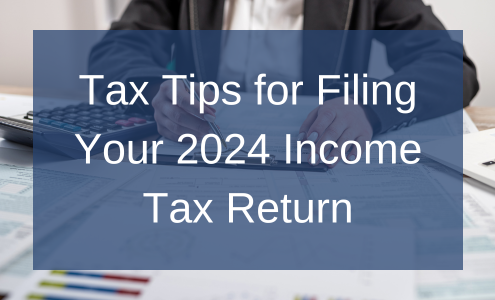
Tax Tips for Filing Your 2024 Income Tax Return
Get ahead of tax season! Discover what’s new for 2024—from increased CPP contributions and Home Buyers’ Plan changes to key deductions and credits. Maximize your refund and avoid costly mistakes.
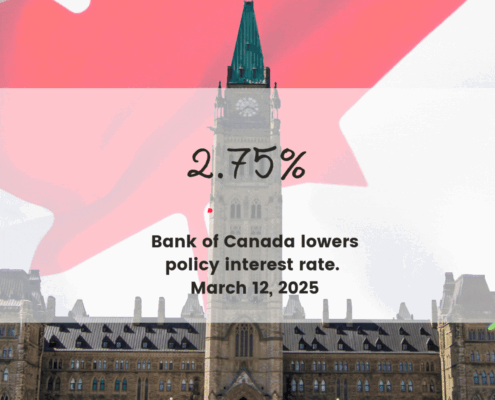
Bank of Canada Announces Interest Rate Cut Amid Economic Uncertainty
The Bank of Canada has cut interest rates to 2.75%, reflecting ongoing economic challenges and trade uncertainties.
Market volatility is normal, but staying disciplined and diversified helps manage risk over the long term.
If you have questions or concerns, please reach out—we're here to help.
#BankOfCanada #InterestRates #MarketVolatility #FinancialWellbeing
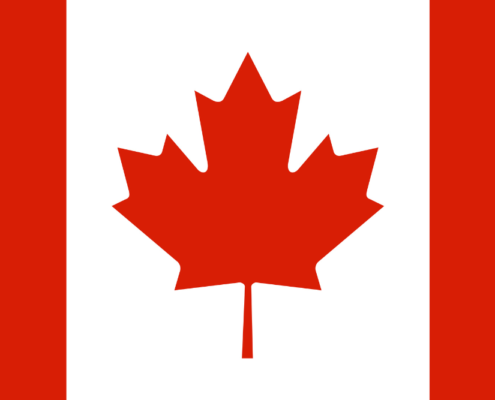
2025 Canadian Controlled Private Corporation Tax Rates
Stay updated on 2024-2025 Canadian corporate tax rates for CCPCs. Small business rates start at 9%, active business varies, and investment income is 38.7%.
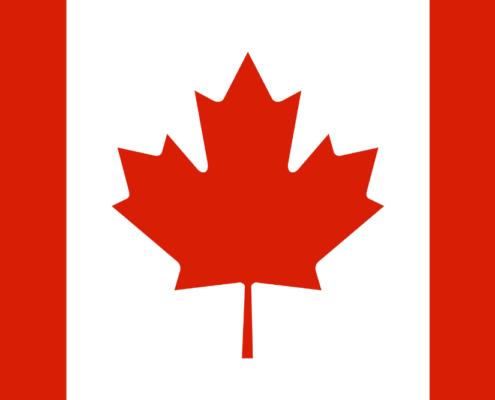
2025 Canada Money Facts
2025 Canada Money Facts – Get the latest TFSA, RRSP, FHSA, CPP, OAS, and RESP limits. Stay informed on savings, pensions, and benefits for the year ahead!

How Tariffs Affect Your Wallet: A Canadian Perspective on the US–Canada Trade War
The US–Canada trade war is hitting home, raising prices on everyday goods and shaking the economy. With tariffs on both sides, what does this mean for your wallet? Learn how trade policies impact your cost of living, investments, and financial future.
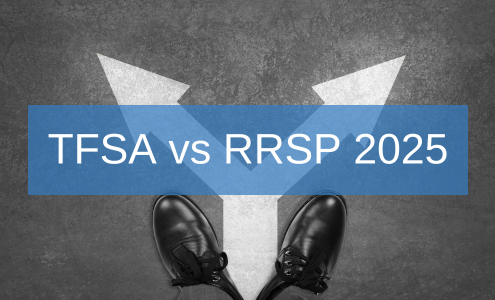
TFSA vs RRSP 2025
When looking to save money in a tax-efficient manner, Tax-Free Savings Accounts (TFSA) and Registered Retirement Savings Plans (RRSP) can offer significant tax benefits. The main difference between the two is that TFSAs are ideal for short-term goals, such as saving for a down payment on a house or a vacation, as its growth is entirely tax-free, while RRSPs are more suitable for long-term goals such as retirement. When comparing deposit differences, TFSAs have a limit of $7,000 for the current year, while RRSPs have a limit of 18% of your pre-tax income from the previous year, with a maximum limit of $32,490. In terms of withdrawals, TFSAs have no conversion requirements and withdrawals are tax-free, while RRSPs must be converted to a Registered Retirement Income Fund (RRIF) at age 71 and withdrawals are taxed as income.
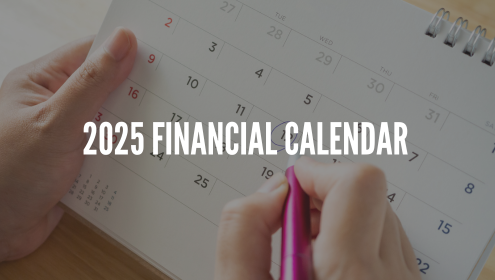
2025 Financial Calendar
Managing your finances effectively begins with staying informed about important dates and deadlines throughout the year. This comprehensive guide outlines key financial milestones, including tax deadlines, benefit payment schedules, and contribution opportunities, to help you stay organized and on track. Whether you're planning for tax season, reviewing your investments, or ensuring timely payments, this calendar provides everything you need to navigate the year with confidence. Take a moment to familiarize yourself with these essential details and set yourself up for a smooth and successful 2025.
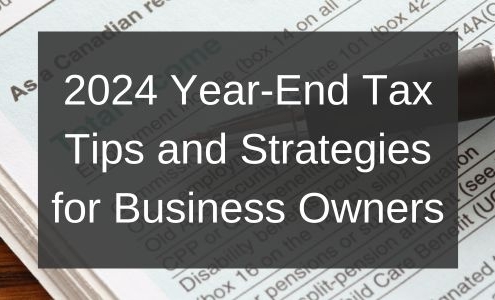
2024 Year-End Tax Tips and Strategies for Business Owners
Discover essential 2024 tax strategies tailored for business owners! From optimizing compensation and preserving the Small Business Deduction to maximizing the Lifetime Capital Gains Exemption, these tips can help save on taxes while planning for your business's future.
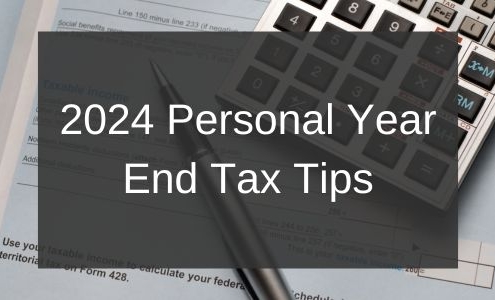
2024 Personal Year End Tax Tips
Get ready for tax season with our 2024 guide! Discover actionable tips for families, retirees, students, and investors, including insights on TFSAs, RRSPs, capital gains changes, and much more. Don’t miss these strategies to make the most of your tax year.
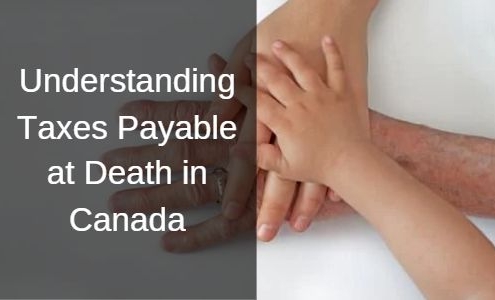
Understanding Taxes Payable at Death in Canada
Discover how taxes impact your estate in Canada and explore strategies to minimize the burden. Learn how to manage earned income, deemed disposition, and withdrawals at death to preserve your legacy.

What is Critical Illness Insurance?
More people are surviving serious medical issues such as cancer, a heart attack, or a stroke. And while this is good news if a critical illness happens to you – your recovery may come with costs that you don’t have the money to cover.
This is where critical illness insurance can play a crucial role. Our article covers the key things you need to know about critical illness insurance:
• What critical illness insurance is.
• What you can use the money from critical illness insurance payout for.
• How you can get critical illness insurance.

The Health Spending Account for Business Owners and Incorporated Professionals
Discover a game-changing solution to manage medical expenses efficiently - the Health Spending Account. As a business owner, reduce tax burdens and provide tax-free benefits to yourself and employees. No monthly premiums, cost-effective, and hassle-free reimbursement process. Unlock the full potential of your healthcare budget now.

What is disability insurance?
Discover how disability insurance can safeguard your income if you're unable to work due to injury or illness. Learn about the benefits, how it works, and why it's crucial for everyone, especially the self-employed.

Getting Ready for Money Emergencies
Facing unexpected financial emergencies? An emergency fund acts as your financial safety net, ensuring peace of mind without dipping into savings or incurring debt. Start small, build steadily.

Network of Professionals
As a financial advisor, my primary goal is to help you achieve financial clarity by accessing a network of dedicated professionals. Together, we provide personalized advice and services to help you make informed decisions and secure your future. Think of me as your financial coordinator, ensuring every aspect of your financial life works smoothly.

Empowering Your Family’s Financial Future: A Comprehensive Guide to Budgeting
Secure your family's financial future with effective budgeting. Learn how to gain financial clarity, achieve your goals, and prepare for emergencies in our comprehensive guide.
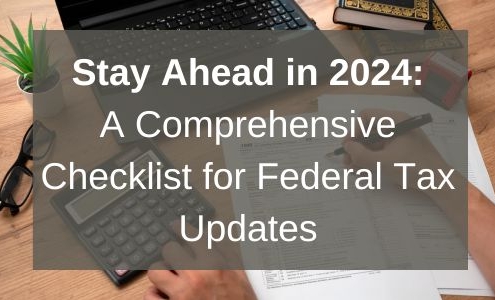
Stay Ahead in 2024: A Comprehensive Checklist for Federal Tax Updates
Explore the upcoming 2024 Canadian tax changes affecting investors, business owners, and high-net-worth individuals. From capital gains adjustments to new incentives, stay informed with our comprehensive checklist.

2024 Federal Budget Highlights
On April 16, 2024, Canada's Deputy Prime Minister and Finance Minister, Chrystia Freeland, presented the federal budget.
While there are no changes to federal personal or corporate tax rates, the budget introduces:
• An increase in the portion of capital gains subject to tax, rising from 50% to 66.67%, starting June 25, 2024. However, individual gains up to $250,000 annually will retain the 50% rate.
• The lifetime exemption limit for capital gains has been raised to $1.25 million. Additionally, a new one-third inclusion rate is set for up to $2 million in capital gains for entrepreneurs.
• The budget confirms the alternative minimum tax changes planned for January 1, 2024 but lessens their impact on charitable contributions.
• This year's budget emphasizes making housing more affordable. It provides incentives for building rental properties specifically designed for long-term tenants.
• Introduces new support measures to aid people buying their first homes.
• Costs for specific patents and tech equipment and software can now be written off immediately.
• Canada carbon rebate for small business
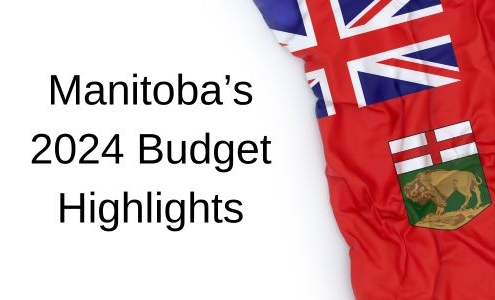
Manitoba’s 2024 Budget Highlights
Manitoba's 2024 budget introduces vital tax changes and credits, including a new Homeowners Affordability Tax Credit and enhanced Fertility Treatment Tax Credit, aiming to support individuals and businesses alike
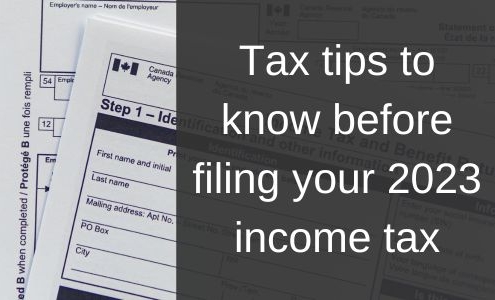
Tax tips to know before filing your 2023 income tax
Unlock the secrets to maximizing your 2023 tax returns with our essential guide. From the new Advanced Canada Workers Benefit to crucial deductions for families, ensure you're not leaving money on the table this tax season.

Exploring the Value of Group Benefit Plans for Your Employees
Unlock the potential of group benefits! Enhance employee well-being, reduce turnover, and boost your business with customized plans. Learn more.

How To Use Insurance To Provide Your Family With Financial Protection
The best way to provide your family with financial protection is with solid insurance planning. These three types of insurance will ensure your family has the financial resources they need if you die, are injured, or become ill:
- Life insurance.
- Critical illness insurance.
- Disability insurance.
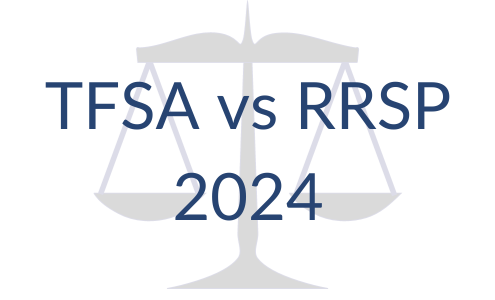
TFSA vs RRSP – 2024
When looking to save money in a tax-efficient manner, Tax-Free Savings Accounts (TFSA) and Registered Retirement Savings Plans (RRSP) can offer significant tax benefits. The main difference between the two is that TFSAs are ideal for short-term goals, such as saving for a down payment on a house or a vacation, as its growth is entirely tax-free, while RRSPs are more suitable for long-term goals such as retirement. When comparing deposit differences, TFSAs have a limit of $7,000 for the current year, while RRSPs have a limit of 18% of your pre-tax income from the previous year, with a maximum limit of $31,560. In terms of withdrawals, TFSAs have no conversion requirements and withdrawals are tax-free, while RRSPs must be converted to a Registered Retirement Income Fund (RRIF) at age 71 and withdrawals are taxed as income.
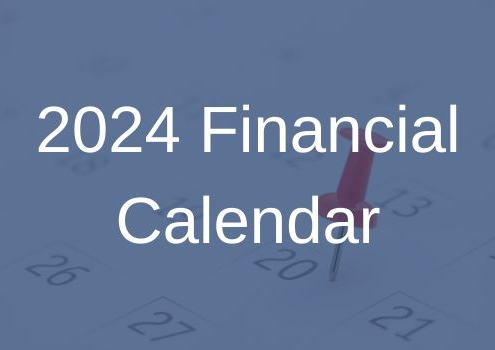
2024 Financial Calendar
Stay ahead in 2024 with our comprehensive financial calendar! From tax filing to benefit distributions, we guide you through key dates like the $7,000 TFSA contribution and $8,000 First Home Savings Account. Bookmark now for a financially savvy year!
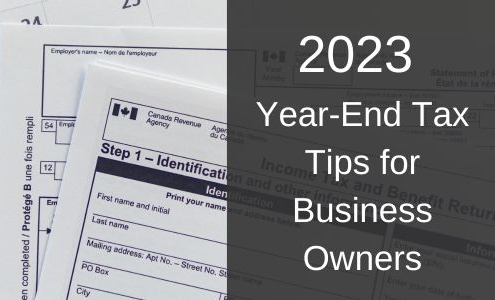
2023 Year-End Tax Tips and Strategies for Business Owners
Maximize your tax benefits as a business owner in 2023! Learn key strategies for salary vs. dividends, passive investments, and more.
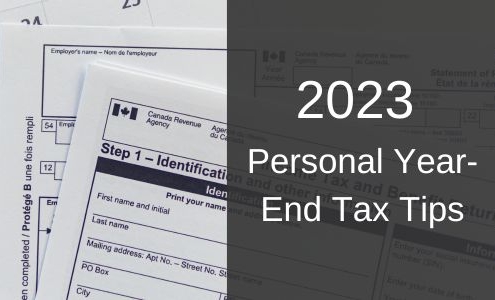
2023 Personal Year-End Tax Tips
Maximize your tax savings! Discover expert tips on investments, family deductions, retirement, and more in our latest article.
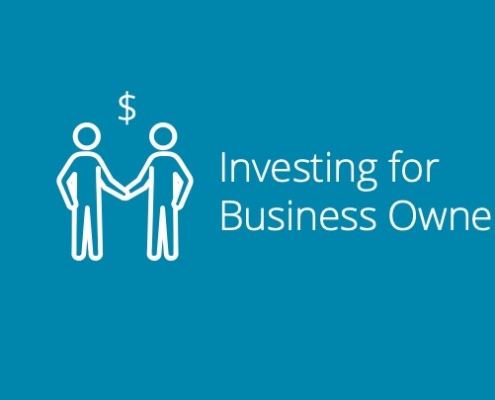
Investing as a Business Owner 2023
Many business owners have built up earnings in their corporation and are looking for tax efficient ways to pull the earnings out to achieve their personal and business financial goals. We outline the factors to consider when investing as a corporation.

Protecting Key Talent using Group Benefits
Discover the secrets to retaining your organization's most valuable employees and gaining a competitive edge in today's dynamic job market. Learn how group benefits play a crucial role in fostering a knowledgeable and engaged workforce. From comprehensive health coverage to career development opportunities, this article unveils the keys to a sustainable future. Don't miss out on the chance to build a stronger, more prosperous tomorrow for your company. Read on and unlock the potential of group benefits!
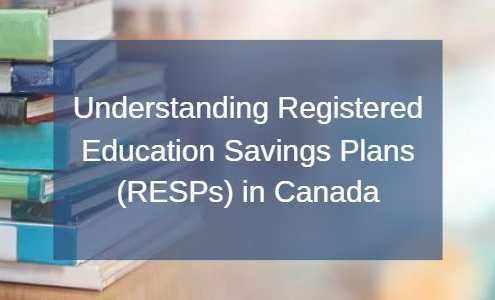
Understanding Registered Education Savings Plans (RESPs) in Canada
Dive into the details of Registered Education Savings Plans (RESPs)! This guide covers how RESPs work, eligibility criteria, benefits, and government grants such as the Canada Education Savings Grant. Learn how to open an RESP and safeguard your child's educational future.
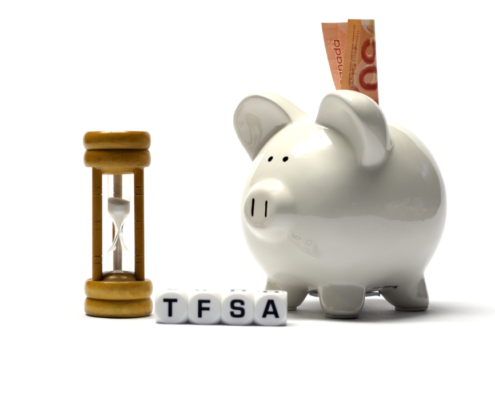
Understanding Tax-Free Savings Accounts (TFSAs)
A Tax-Free Savings Account is a powerful tool to help you achieve your financial goals. Whether you're saving for a new home, planning for retirement, or investing in your children's education, a TFSA can be a valuable part of your financial strategy. The flexibility and tax advantages it offers make it a great choice for many Canadians.
Remember, the sooner you start, the more time your investments have to grow tax-free. Every dollar counts when you're planning for the future, and a TFSA can help you make the most of your savings.
Don't wait until tomorrow to start planning for your future. Contact us today to begin your journey to financial security today.

Do you have enough for retirement?
Many of us dream of the day that we can retire and have the time to ourselves that we have dreamed of for so many years. But, to have a genuinely contented and relaxing retirement, you need to ensure that you have the means to afford it. So, now's the best time to consider the three critical stages of retirement planning.
1) Accumulation
2) Pre-retirement
3) Retirement

First Home Savings Account (FHSA): What You Need to Know
Are you looking to buy your first home in Canada? The First Home Savings Account (FHSA) could help make it happen. This savings plan allows first-time home buyers to save up to $40,000 tax-free, with contributions being tax-deductible. In this article and infographic, we cover everything you need to know about FHSA, including eligibility requirements, contributions and deductions, qualifying investments, withdrawals, and transfers.
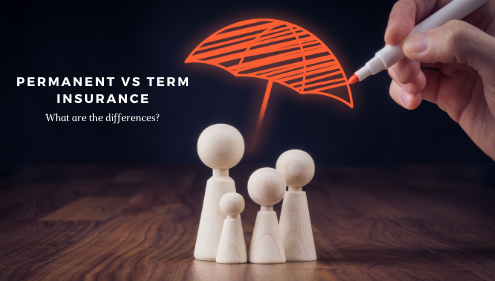
Permanent versus Term Life Insurance – What are the Differences?
You know you need life insurance – but you’re not sure which kind is best for you. There are two main kinds of life insurance:
• Permanent, which lasts for your entire life. Premiums can be more expensive, but you can also use the policy to build up cash value.
• Term, which is only good for a set amount of time. Premiums are less expensive, and you cannot build up cash value – but coverage is easy to get and understand.
We can help you determine which type of insurance is best for you and how much it will cost you.
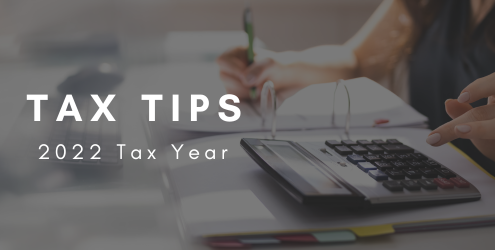
Tax Tips You Need To Know Before Filing Your 2022 Taxes
It’ll be time to file your 2022 taxes soon, and you must take advantage of every tax credit and deduction you can! Our article covers the following:
• Canada Workers Benefit.
• Claiming home office expenses.
• The tax deduction for zero-emissions vehicles.
• Return Of Fuel Charge Proceeds To Farmers Tax Credit.
• Eligible Educator School Supply Tax Credit.

Why A Buy-Sell Agreement Is Vital For Your Business
A buy-sell agreement is a legally binding document that sets out what must happen to a business if one or more of the owners is no longer involved. It is crucial for businesses as it protects both shareholders and the business itself in the event of a partner's departure. A buy-sell agreement provides many benefits, including maintaining business continuity, minimizing disputes between remaining co-owners and the family of the departing owner, decreasing stress and uncertainty for all business owners, and protecting business assets and liquidity with a solid financial and tax plan.
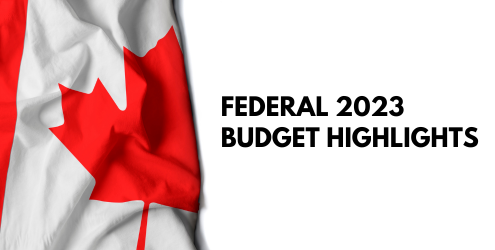
Federal Budget 2023 Highlights
On March 28, 2023, the Federal Government released their 2032 budget. This article highlights the following financial measures:
• New transfer options associated with Bill C-208 for intergenerational transfer.
• New rules for employee ownership trusts.
• Changes to how the Alternative Minimum Tax is calculated.
• Improvements to Registered Education Savings Plans.
• Expanding access to Registered Disability Savings Plans.
• Grocery rebate.
• Deduction for tradespeople tool expenses.
• Automatic tax filing.
• New Canadian Dental Care Plan.
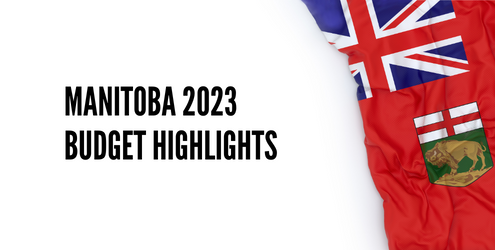
Manitoba 2023 Budget Highlights
On March 7, 2023, Manitoba’s Minister of Finance delivered the province’s 2023 budget, focusing on these areas:
• Investing in stronger communities.
• Expanding healthcare coverage.
• Providing infrastructure support.
Budget 2023 includes no personal or corporate tax rate changes, but some temporary corporate tax credits have been made permanent. In addition, Manitoba’s basic personal amount has increased to $15,000, and two tax bracket thresholds will also be increasing.

The Six Steps to Financial Planning
A certified financial planner is trained to focus on all aspects of your finances – everything from your taxes to retirement savings.
The six steps to financial planning are:
• Meeting your financial planner
• Determining your goals and expectation
• Reviewing your current financial state
• Developing a financial plan
• Implementing a financial plan
• Monitoring the plan
A certified financial planner will develop a plan that works for you both today and in the future.
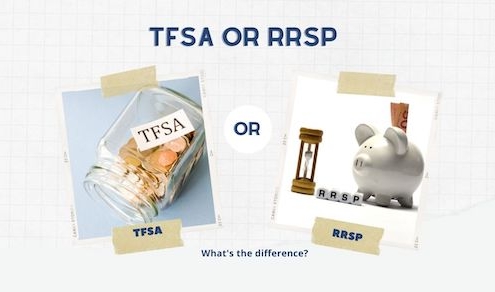
TFSA versus RRSP – What you need to know to make the most of them in 2023
When looking to save money in a tax-efficient manner, Tax-Free Savings Accounts (TFSA) and Registered Retirement Savings Plans (RRSP) can offer significant tax benefits. The main difference between the two is that TFSAs are ideal for short-term goals, such as saving for a down payment on a house or a vacation, as its growth is entirely tax-free, while RRSPs are more suitable for long-term goals such as retirement. When comparing deposit differences, TFSAs have a limit of $6,500 for the current year, while RRSPs have a limit of 18% of your pre-tax income from the previous year, with a maximum limit of $30,780. In terms of withdrawals, TFSAs have no conversion requirements and withdrawals are tax-free, while RRSPs must be converted to a Registered Retirement Income Fund (RRIF) at age 71 and withdrawals are taxed as income.

2023 Financial Calendar
Welcome to our 2023 financial calendar! This calendar is designed to help you keep track of important financial dates and deadlines, such as tax filing and government benefit distribution. You can bookmark this page for easy reference or add these dates to your personal calendar to ensure you don't miss any important financial obligations.
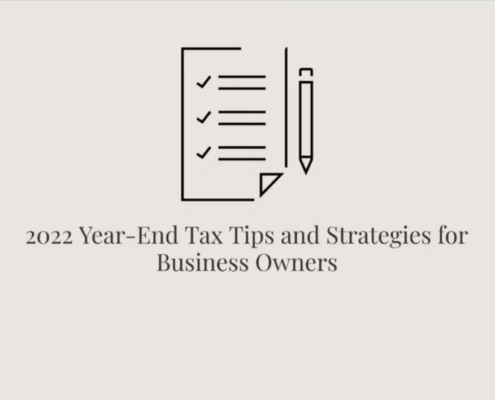
2022 Year End Tax Tips and Strategies for Business Owners
The end of 2022 is quickly approaching – which means for business owners, it's time to review tax tips and strategies to maximize your benefits.
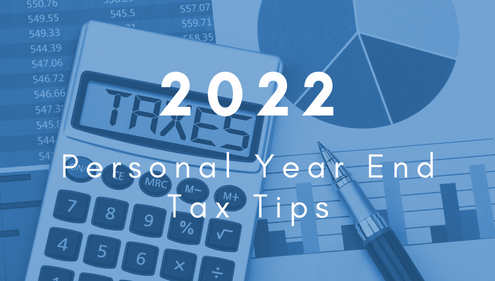
2022 Personal Year-End Tax Tips
The end of 2022 is quickly approaching – which means it’s time to get everything in order, so you’re ready when it comes time to file your taxes.
We’ve broken this article into the following sections to make it easy to find the tax tips you’re looking for:
• Investment considerations, including how to best contribute to TFSAs, RRSPs, and RDSPs.
• Families, including how to claim childcare expenses and make the most of RESPs.
• Retirees, including essential details about applying for CPP and OAS.
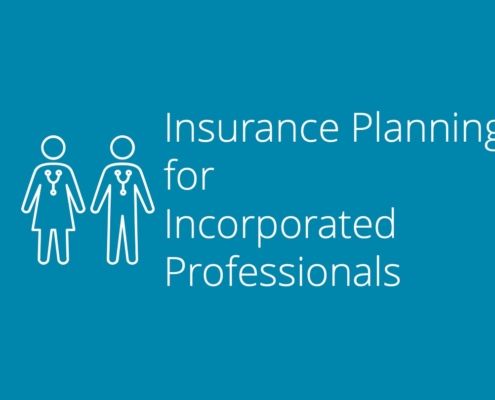
Insurance Planning for Incorporated Professionals
For incorporated professionals, making sure your business is financially protected can be overwhelming. Incorporated Professionals face a unique set of challenges when it comes to managing risk. Insurance can play an important role.
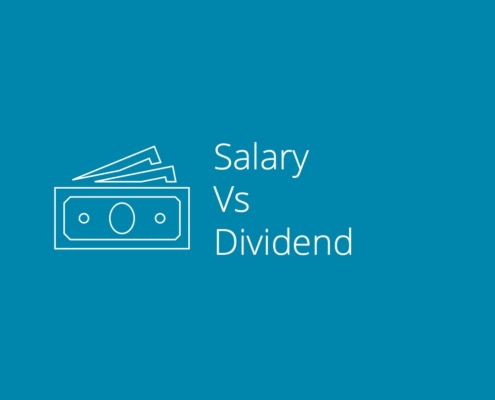
Salary vs Dividend
As a business owner, you have the ability to pay yourself a salary or dividend or a combination of both. In this article and infographic, we will examine the difference between salary and dividends and review the advantages and disadvantages of each.

Accessing Corporate Earnings
One of the financial planning issues that business owners face is how to access their corporate earnings in a tax efficient way. Please contact us to learn how we can get more money in your pocket than in the government's.

Don’t lose all your hard-earned money to taxes
It’s essential to manage your tax planning properly – both while you are living and for after your death. You want as much of your money as possible to go to your beneficiaries, not the government. Our article contains three tips to help you do that:
1. Learn how to make the most of the lifetime capital gains exemption.
2. Figure out ways to decrease your end-of-life tax bill.
3. Look into Immediate Financing Arrangements.

Five Ways To Withdraw Money From Your Business In A Tax-Efficient Manner
You have worked long and hard to build up your business, and now you are ready to withdraw money from your business' bank account. But you don't want to get hit with a huge tax bill. So here are 5 ways to withdraw money from your business in a tax-efficient manner.

Financial Planning For Self-Employed Contractors
Being a self-employed contractor can bring you a large cash flow and the satisfaction of being your own boss – but it can also make financial planning more complicated than being an employee.
When creating a financial plan, Self-employed contractors need to keep a number of items in mind. Read to find out!

Life Insurance after 60- is it necessary?
You may have had life insurance for as long as you can remember. You knew it was important to make sure that your family would be taken care of and be able to pay their bills if anything happened to you.
But now that you’re over 60, your children are grown, and your mortgage is paid off, you may feel you don’t need life insurance anymore. However, there are some circumstances under which it may still make sense for you to have life insurance:
• You still have substantial debt.
• You have dependent children or grandchildren.
• You want to be able to leave a financial legacy.
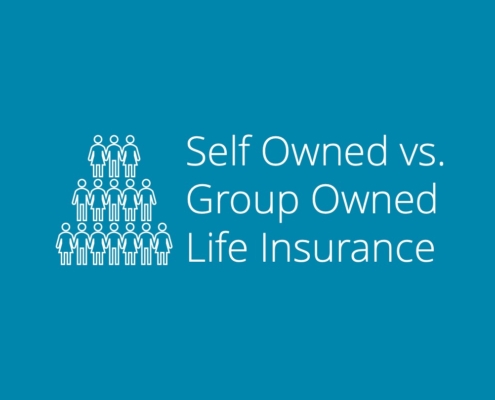
Group Insurance vs Individual Life Insurance
While it’s great to have group coverage from your employer or association, in most cases, people don’t understand the that there are important differences when it comes to group life insurance vs. self owned life insurance.
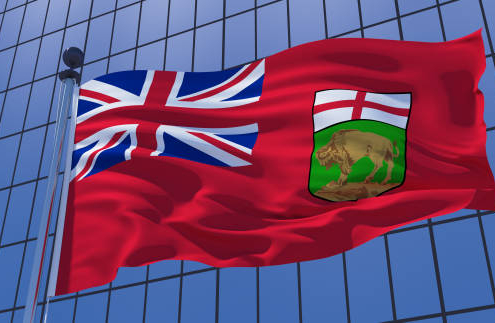
2022 Manitoba Budget Highlights
Manitoba just released its 2022 budget. Read our article to see how Manitoba's budget will impact you.

2022 Federal Budget Highlights
On April 7, 2022, the Federal Government released their 2022 budget. Our article contains highlights of the various financial measures in this budget, divided into these sections:
• Housing
• Alternative minimum tax
• Dental care
• Small businesses
• Tradespeople
• Canada Growth Fund
• Climate
• Bank and insurer taxes

2021 Income Tax Year Tips
It’ll be time to file your 2021 taxes soon, and you must take advantage of every tax credit and deduction that you can. Our article includes information on a variety of subjects you need to know about, including what to do if you’ve had to repay COVID-19 benefits, how to plan ahead if you’re self-employed or retiring soon, and what you need to know if you have a home office or employer-provided benefits.

Charitable Giving
Why do individuals give to charity: Leave a legacy, Essential to organizations, Meaningful tax relief for contributors
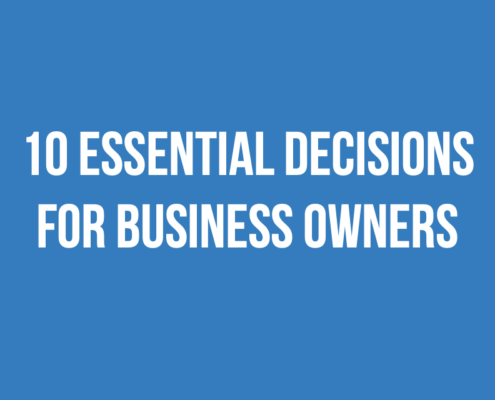
10 Essential Decisions for Business Owners
Business owners are busy… they’re busy running a successful business, wearing lots of hats and making a ton of decisions. We've put together a list of 10 essential decisions for every business owner to consider.
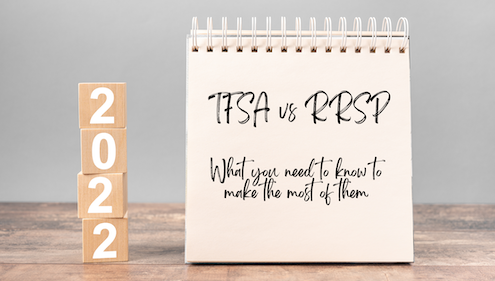
TFSA versus RRSP – What you need to know to make the most of them in 2022
TFSAs and RRSPs can be significant savings vehicles. To help you understand their differences, we have put together this article to compare:
- TFSA versus RRSP - Differences in deposits
- TFSA versus RRSP - Differences in withdrawals
Understanding the differences between these two types of tax-advantaged accounts can help you better plan for future purchases and your eventual retirement.
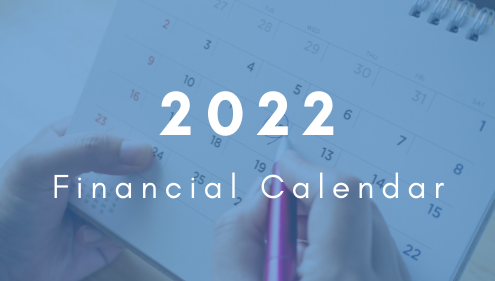
2022 Financial Calendar
Looking for an "at a glance" document covering all the important dates you need to know to stay on track with your financial planning in 2022?
Our 2022 financial calendar (which you can easily bookmark or print out) makes sure you're always in the loop! It lists important dates, including:
• Payments dates for the Canada Child Benefit, CPP, OAS, and the GST/HST credit.
• When TFSA contribution room starts again.
• Tax filing deadlines.
• Charitable contribution deadlines and the last day to contribute to registered investment accounts.
• When the Bank of Canada interest rate announcements are.
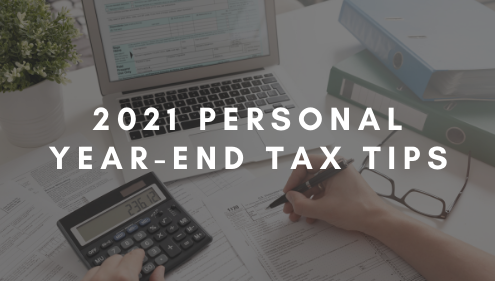
2021 Personal Year-End Tax Tips
The end of 2021 is quickly approaching – which means it’s time to get everything in order, so you’re ready when it comes time to file your taxes.
We’ve broken this article into the following sections to make it easy to find the tax tips you’re looking for:
• Individuals, including details on COVID-19 benefits and important tax credits.
• Investment considerations, including how to best contribute to TFSAs, RRSPs, and RDSPs.
• Families, including how to claim childcare expenses and make the most of RESPs.
• Retirees, including essential details about applying for CPP and OAS.
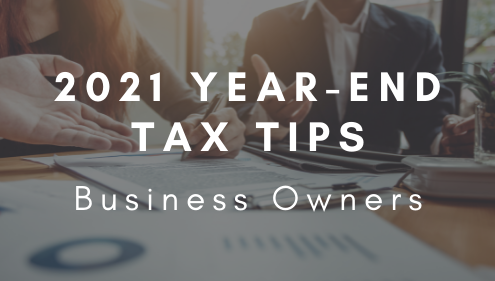
2021 Year-End Tax Tips for Business Owners
We’re approaching the end of the year, so it’s time to review your business finances. We’ve put together an article highlighting the most critical tax-planning tips you need to know as a business owner.
We’ve focused on:
• How to determine the right salary and dividend mix.
• The best ways to handle compensation.
• How to make sure you can take advantage of the small business deduction.
• What you need to know about depreciable assets and charitable donations.
• How to make the most of Covid-19 relief programs.
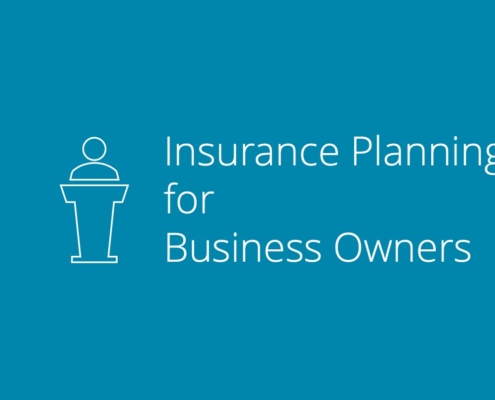
Insurance Planning for Business Owners
For business owners, making sure your business is financially protected can be overwhelming. Business owners face a unique set of challenges when it comes to managing risk. Insurance can play an important role.
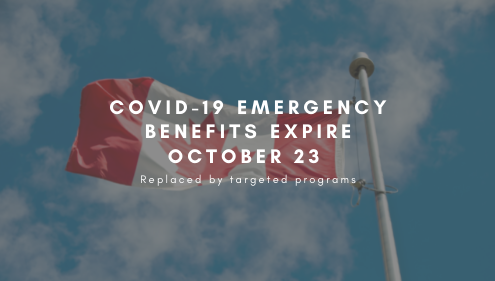
“Final Pivot” – COVID-19 Emergency Benefits expire October 23rd, replaced by targeted supports
On Thursday, October 22nd, Deputy Prime Minister and Finance Minister Chrystia Freeland announced the "final pivot in delivering the support needed to deliver a robust recovery." This "Final Pivot" means several existing pandemic support programs for individuals and businesses will expire on October 23rd, 2021:
- Canada Recovery Benefit (CRB)
- Canada Emergency Rent Subsidy (CERS)
- Canada Emergency Wage Subsidy (CEWS)

Defined Contribution vs. Benefit Pension Plan for Employees
As an employer, you may be thinking about offering your employees a pension plan. If so, you have two main options: a defined benefit pension plan and a defined contribution pension plan. A defined benefit pension plan offers your employees a set amount of money when they retire, whereas a defined contribution pension plan does not.
We walk you through the differences between the two types of pension plans.

Paying for Education
Post-secondary education can be expensive, however having the opportunity to plan for it helps with making sure that you’re capable to meet the costs of education.
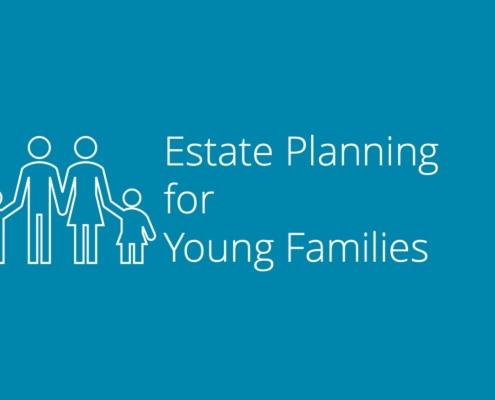
Estate Planning for Young Families
Having a family is a blessing and can also bring a lot of worry. A lot of this worry can stem from not being prepared for a disaster like if something were to happen to you or your spouse.
We've put together an infographic checklist that can help you get started on this. We know this can be a difficult conversation so we're here to help and provide guidance.

Estate Freeze
No business owner likes to think about handing over their business they've built from the ground up. But the fact of the matter is, you will have to do it eventually. Even more concerning, what if you were to become ill or incapacitated? Making a decision of this magnitude during trying times would not be ideal.
For the business owner, an estate freeze can be an integral part of your estate planning strategy. The purpose of an estate freeze is to lock-in (freeze) the value of the business, freeing the successor from the tax liability that may arise should the business' value increase.
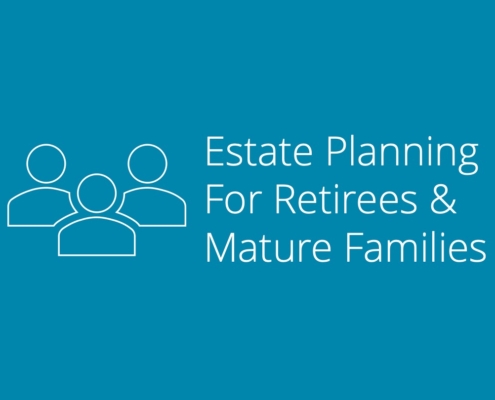
Estate Planning for Retirees and Mature Families
What happens when the children grow up and they are no longer dependent on their parents? Estate planning for mature families and retirees can bring up a number of issues including family dynamics and harmony.

Importance of a Buy-Sell Agreement
Working as a partnership between 2 or more individuals is never an easy task, and the situation only gets more complicated when one or more of them exits the business. Protecting not only the business, but your personal interests, as well as your family’s future are very important objectives for any business owner, and should not be overlooked.
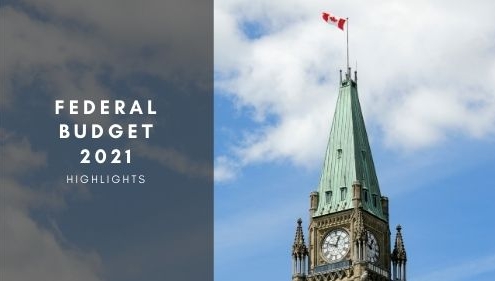
Federal Budget 2021 Highlights
On April 19, 2021, the Federal Government released their 2021 budget. Our article contains highlights of the various financial measures in this budget, divided into three different sections:
• Business Highlights, including an extension to COVID-19 Emergency Business Supports, new programs to support job creation, and a change in interest deductibility limits.
• Individual Highlights, including details on the tax treatment and repayment of personal COVID-19 benefits (such as CERB), eligibility changes to the Disability Tax Credit, an increase in OAS for those 75 and up, and support for job skills retraining.
• Additional Highlights, including a proposed federal minimum wage of $15, changes to the GST New Housing Rebate conditions, and new or increased taxes in areas such as luxury goods, tobacco, and Canadian housing owned by non-resident foreign owners.
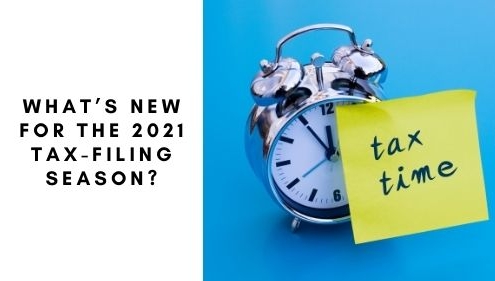
What’s new for the 2021 tax-filing season?
Tax season is upon us once again. But since 2020 was a year like no other, the 2021 tax-filing season will also be different. Due to all the changes in both where and how Canadians worked, the Canadian government has introduced some new tax credits and deductions to keep pace with these changes. Our article covers all of the following:
• How to claim home office expenses
• The new Canada Training Credit
• Pandemic emergency funds
• New digital news subscription tax credit

Estate Planning for Blended Families
Blended families – where two people get married but have children from previous relationships – are becoming more common. On top of the day-to-day challenges of blending a family, new spouses also have to figure out how to plan their estates, so everyone is properly taken care of.
We cover all of the following a blended family must consider while estate planning:
• Sharing the Family Home
• Make the Most of a Registered Retirement Savings Plan
• How to Share Non-Registered Investments and Other Assets
• Why It's Important to Select a Good Trustee
• The Advantages of Life Insurance for Blended Family Planning
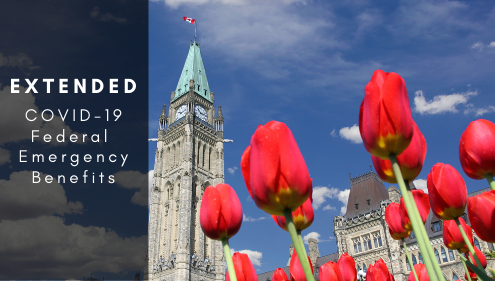
Extended COVID-19 Federal Emergency Benefits
On Friday, February 19, 2021, Prime Minister Justin Trudeau announced an extension to:
- Canada Recovery Benefit
- Canada Recovery Caregiving Benefit
- Canada Recovery Sickness Benefit
- Employment Insurance

Self-employed: Government of Canada addresses CERB repayments for some ineligible self-employed recipients
Great news for some ineligible self-employed Canadians who received the Canada Emergency Response Benefit (CERB)
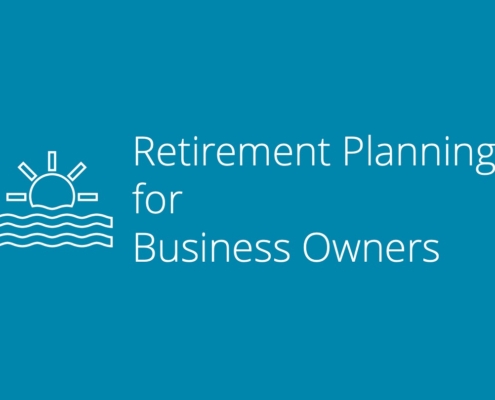
Retirement Planning for Business Owners – Checklist
As a business owner, one of your challenges is learning how to balance between reinvesting into the business and setting money aside for personal savings. Since there are no longer employer-sponsored pension plans and the knowledge that retirement will come eventually, it’s important to have a retirement plan in place.
We've put together an infographic checklist that can help you get started on this.
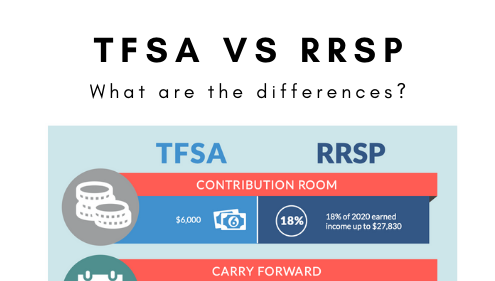
TFSA vs RRSP – What you need to know to make the most of them in 2021
Both TFSAs and RRSPs can be significant savings vehicles for your clients. We've put together an article to help your clients easily understand the differences between them – with one section focussing on differences in deposits and one focussing on differences in withdrawals.
The deposit section focuses on:
• How much contribution room is available each year
• How carry forward works for TFSAs and RRSPs
• Tax deductibility of contributions
• Tax treatment of growth
The withdrawal section focusses on:
• Conversion requirements
• Tax treatment of withdrawals
• Impact of withdrawals on government benefits
• Impact of withdrawals on contribution room
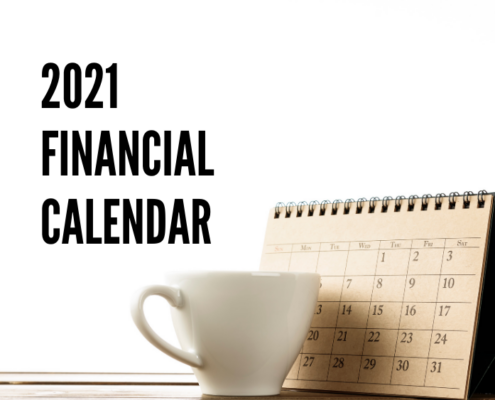
2021 Financial Calendar
We’ve put together a financial calendar for 2021. It contains all the dates you need to know to make the most of your government benefits and investment options. Whether you want to bookmark this or print it out and post it somewhere prominent, you’ll have everything you need to know in one place!

The Need for Corporate Life Insurance
Life insurance is used for two general purposes in a private corporation – managing risk and creating opportunities. The risk management function is satisfied as life insurance provides the corporation with a tax-free payment in the event of the death of an owner or someone vital to the success of the business. As life insurance also allows for the tax-sheltered build up of cash value additional planning opportunities are additionally created.
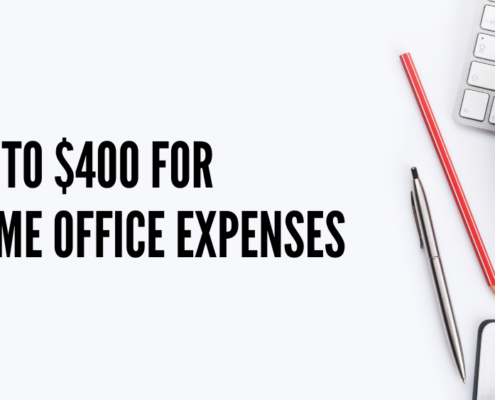
Government of Canada to allow up to $400 for home office expenses
For the 2020 tax year, the Government of Canada introduced a temporary flat rate method to allow Canadians working from home this year due to Covid-19 to claim expenses of up to $400.

Business Owners: 2020 Tax Planning Tips for the End of the Year
It's a great time to review your business finances now that we are nearing year-end. We have listed some of the critical areas to consider and provide you with some helpful guidelines to make sure that you cover all the essentials. We have divided our tax planning tips into four sections:
- Year-end tax checklist
- Remuneration
- Business tax
- Estate

Highlights of the 2020 Federal Fall Economic Statement | Additional $20,000 CEBA loan available now
Finance Minister Chrystia Freeland recently provided the government's fall economic update. It included information on the government's strategy for dealing with the COVID-19 pandemic and its plan to help shape the recovery. We've summarized the highlights for you:
• Corporate Tax Changes, including extensions to subsidy programs.
• Personal Tax Changes, including additional Canada Child Benefit Plan payments and a new "Work from home" tax credit.
• Indirect Tax Changes, including the proposal to charge GST/HST on services provided via digital platforms, as well as the temporary removal of GST/HST on face masks and shields.
For business owners, as of December 4th, the CEBA loan has been expanded by an additional $20,000.

Personal Tax Planning Tips – End of 2020 Tax Year
To help our clients, we’ve put together a comprehensive article filled with great tips on how to get ready for 2020 tax season. Here’s a summary of our personal tax tips article:
• Details about the different COVID-19 benefits programs and the tax ramifications of them
• Information about family tax issues including the Canada Child Benefits and tips on how to split income.
• Managing investments. Details about contributing to various savings plans such as a TFSA, RESP, or RDSP. Also tips on how and when to donate to charity and how to time the purchase or sale of investments.
• Retirement planning. How to make the most of your RRSP, things to know if you’ve turned 71, and tips on RRIF conversion.
